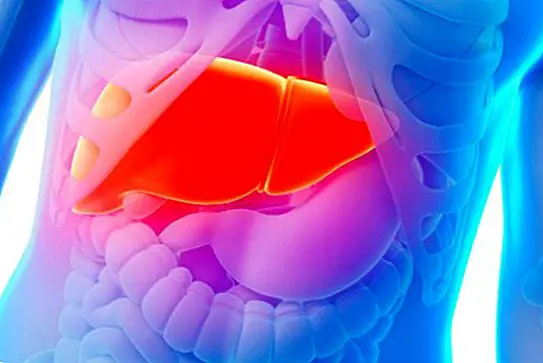Nutritional information of the juices
Although when it comes to enjoying the benefits of fruits always tends to be better eat fresh fruits, given that it is the most appropriate option for it to provide all the nutrients that our body needs without losing vitamins and minerals, natural juices they are an equally valid option.
However, it is necessary to take into account that although the juices can provide us with nutrients (almost the same as the whole fruit would bring), it is essential that let's make the juice once we have peeled and split the fruits, to avoid rust and / or that their virtues are lost.

There is no doubt that they have a great variety of advantages. For example, the main one is its ease of consumption, and we can take it with us and take it whenever we want.
Of course, the natural juices they are always a better and more appropriate option than packaged juices, since the first one becomes the best way to enjoy all its nutrients, since the key is in take them freshly made, so that we will enjoy the main Nutritional values of juices.
Juice nutritional contribution
What does a glass of juice usually provide? Here we summarize some of its most important elements:
- Low caloric intake.
- Carbohydrates: they provide an immediate source of energy. But, as we will see in the next section, they stand out for their high content of sugars.
- Vitamins: as vitamin C (for example, a glass of orange juice contributes between 80 and 100% of the daily needs of vitamin C of our body), vitamin B1 and folic acid.
- Minerals: they are especially rich in phosphorus and potassium, and low in sodium.
- Carotenoids: highlights beta-carotene, precursor of vitamin A.
- Antioxidants: they help to diminish the cellular damage produced by free radicals.
- Polyphenols: like flavonoids or phenolic acids.
- Dietary fiber: ideal to enjoy a good intestinal transit.
A good example: nutritional information of orange juice
Although it is possible to enjoy a wide variety of fruit juices, the reality is that one of them stands out precisely because it is one of the most consumed: Orange juice. To know what is the nutritional contribution of fruit juices, we preferred to take as an example this popular juice.
1 glass of orange juice provides:
- Energy: 112 kcal.
- Carbohydrates: 25.8 gr.
- Of which sugars: 20.8 gr.
- Proteins: 1.7 gr.
- Fat: 0.5 gr.
- Fiber: 0.5 gr.
- Minerals: potassium (286 mg), magnesium (21.78 mg), calcium (21.56 mg), sodium (2 mg), selenium (2 mg), phosphorus (1.80 mg).
- Vitamins: vitamin A (5.16μg), B1 (0.14mg), B2 (0.03mg), B3 (0.55mg), B6 (0.10mg), B9 (37.26μg), vitamin C ( 78 mg).
To enjoy these main nutritional values do not forget something fundamental: it is always better to take freshly made fresh juices than bottled, which in their great majority have already lost their main essential nutrients.

The main problem of juices: its high content of sugars
As we mentioned in a previous article, in which we talked about why it is better to eat whole oranges instead of juice, The main problem of juices and fruit juices is their high content of sugars.
But the problem is not only found in this. We find it fundamentally in that the fiber that we find in a piece of whole fruit is very useful to help our organism so that the sugars naturally present in it are absorbed more slowly. But when we take a fruit juice most of its fiber has been removed, so the sugars in the fruit are absorbed more quickly.
Further, to prepare a fruit juice we need a greater amount of fruit, so that together with the loss of fiber, we find a more obvious problem: we eat more fruit but in the form of sugars and with a smaller amount of fiber. This article is published for informational purposes only. You can not and should not replace the consultation with a Nutritionist. We advise you to consult your trusted Nutritionist.



